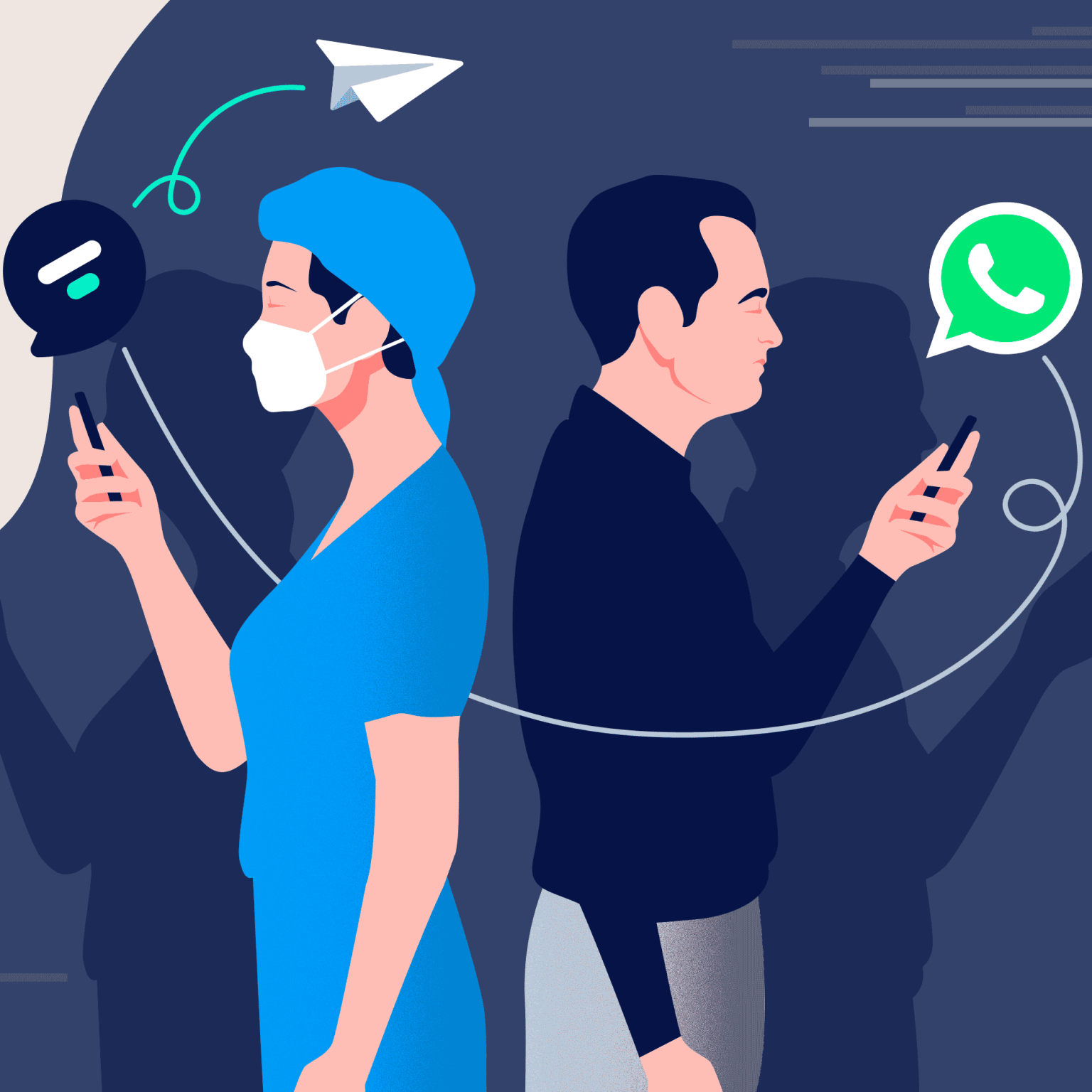There is no question that WhatsApp is the undisputed leading messaging solution for private use.
The standard features of WhatsApp set benchmarks for the entire messenger market. Nevertheless, WhatsApp is not made for business conversations and information exchange. Among other things, data security and DSGVO are at best a grey area and normally there is a risk of penalties. In addition, usability and product features are focused on private communication with friends and family. Many features that are of great use to companies and authorities for communication and collaboration are missing.
The conclusion is that companies – especially organizations with a majority of mobile workers or with a high volume of communication between mobile workers and office workers – need a secure and confident business messaging app as an “alternative”. For an efficient information exchange within the company, one needs much more than the functions of a chat solution for private use like WhatsApp. It requires many more special features, such as advanced group chats, secure document sharing, polling functions for voting, alerting functions for escalations, geo-referencing functions for locations, or industry-specific connections to third party systems (CRM, ERP, support, ticketing, etc.).
With such functions, companies can cover a wide range of applications, accelerate workflows and even digitalize processes. Thus, even industry-specific requirements of users and the IT department are met and companies can increase productivity as a result.
Even if you only assume internal corporate communications, it makes perfect sense to switch from WhatsApp to Teamwire, so that all exchanges are guaranteed via a secure messenger. But what if employees also want to enter into external communication with customers, citizens or patients?
Teamwire builds the bridge – Connecting both communication worlds
There are a few, if countless, cross-industry use cases in which service teams or service employees are in direct contact with an end customer (= external communication) – in most cases these are classic customer service scenarios. Service teams often try to use a Unified Communication Platform to perform the constant exchange over all communication channels.
We as Teamwire see the potential of mobile real-time communication here. And we have found that, together with WhatsApp for Business, we not only cover such deployment scenarios more easily, but also enable new use cases in customer service. Teamwire offers a very secure and user-friendly business messaging app. Together with WhatsApp for Business, we are building a bridge to the end customer, for whom WhatsApp is the standard communication app.
The six simple steps of a mobile customer service communication:
#1 A service team works on a Teamwire environment.
#2 An end customer owns WhatsApp and wants to ask a question to the service team.
#3 A WhatsApp for Business phone number is stored on the website. The end customer stores the number in the address book of the mobile device and then sends a message to the number.
#4 The service team now receives this WhatsApp message as a direct push notification with the name of the end customer in Teamwire.
#5 A service member of the team can now reply to the request directly in the Teamwire app.
#6 The end customer receives the response in WhatsApp as a normal incoming message.
A simple set-up for the fastest possible implementation
Only a few steps are needed to successfully implement this scenario:
#1 Select the hosting for Teamwire
Teamwire is a highly scalable and powerful team communication solution that can be hosted as a cloud, private cloud or on-premises solution, depending on the customer’s requirements.
#2 Book a WhatsApp for Business phone number
A WhatsApp for Business phone number is required for direct end customer contact. Your company or a selected team can then be reached via this number. Depending on the application, you define a recipient group that can be reached at this number.
#3 Roll-out by the IT administration
Deployment is covered with a minimal infrastructure investment. The operational effort involved in both deployment and creation of WhatsApp for Business Integration is low, and maintenance and updates are automatic. IT sets up a Teamwire environment and can easily invite the respective employees via the administration interface and distribute access rights for specific groups or communication circles. One group in this case, for example, is the customer service group, which is activated for direct communication in the WhatsApp for Business channel.
Would you like to learn more about possible use cases and customer scenarios or get a demo of how Teamwire and WhatsApp for Business work together? Then contact us today.
